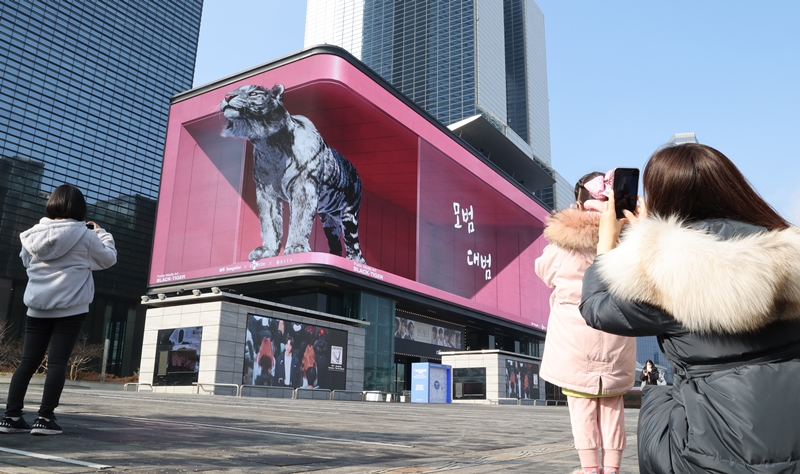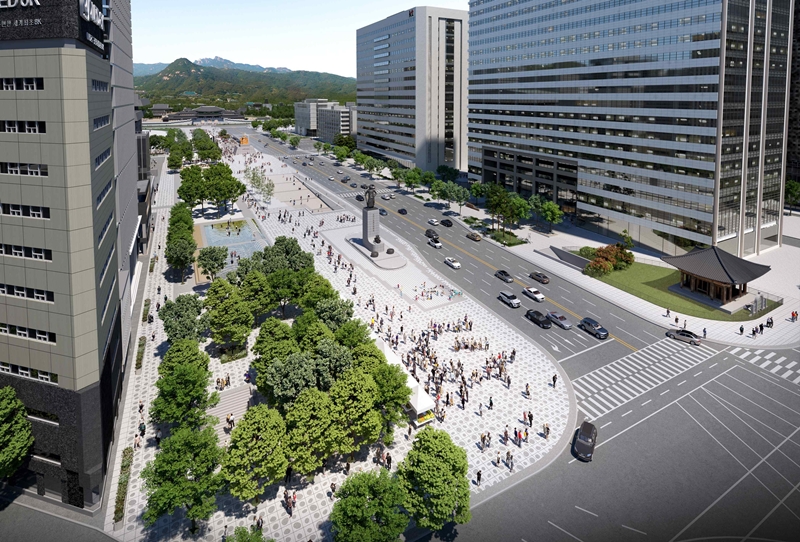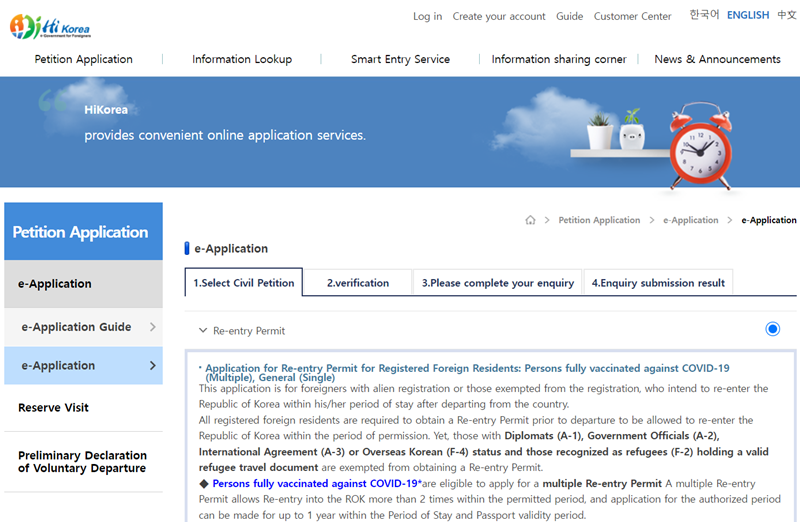
A large image of a black tiger media on Jan. 2 is shown at the massive outside screen of the Seoul COEX in the Samseong-dong neighborhood of the capital's Gangnam-gu District to wish for a return to daily life in the new year. (Yonhap News)
By Park Hye Ri and Lee Jihae
This month saw the minimum wage rise 5% to KRW 9,160 per hour, up KRW 440 from last year's. In this year's second half, the Test of Proficiency in Korean (TOPIK) will have a speaking section. And self-driving buses will operate in downtown Seoul.
These are among major changes in the country in 2022 of note for expats or foreign visitors.
The higher minimum wage this year means daily earnings over eight hours of at least KRW 73,280 and monthly pay over 40 work hours per week of KRW 1,914,440. Applicable to all workplaces nationwide, the rate will apply to everyone working under the Labor Standards Act regardless of form of employment or nationality.
From Nov. 19, the internet-based test TOPIK will include a speaking section. The Ministry of Education said the section will be held once this year before being gradually expanded from next year.
Gwanghwamun Square in downtown Seoul will also look different. The vehicle lanes will be gone and the plaza will expand 3.7 times in size and be divided into "history" and "civic" sections. The facilities at Gwanghwamun Square will have Hangeul-themed designs on them in providing a wealth of attractions. The civic plaza will be opened this year and the one on history next year.
As early as April, two self-driving buses will operate in the capital's Cheonggyecheon Stream area. The domestically developed vehicles will make 24 roundtrips over the 4.8 km distance from Cheonggyecheon Plaza in Jongno-gu District to Cheonggye 5-ga in Jung-gu District.

An aerial view of the new Gwanghwamun Square (Seoul Metropolitan Government)
Other policy changes were made due to the COVID-19 pandemic. Seasonal hiring of foreign workers will see a boost to alleviate the labor shortage in agricultural and fishing villages. The Ministry of Justice has allowed recruiting of seasonal foreign workers year-round and raised the cap on the number of foreign workers at a farm or fishing village from nine to 12.
International students in Korea on the "full-time degree or exchange program" visa (D-2), ethnic Koreans from abroad on the "work and visit" visa (H-2), those invited by the Korean Foundation or the Arts Council Korea for cultural and artistic activities under the "Korean arts and culture" visa (D-1) and those with the "jobseeker" visa (D-10) are also eligible to be seasonal workers.
The re-entry permit policy that took effect in June 2020 to prevent the spread of COVID-19 has also been revised. Foreign nationals were allowed to reenter once only, but from this year, those registered with immigration can gain a permit to enter twice or more over a given period if they were fully vaccinated either in Korea or abroad with no fee.
Foreign nationals must receive a vaccine pass or certificate and vaccine pass sticker from a neighborhood community center and apply for a reentry permit on the website Hi Korea (https://www.hikorea.go.kr/cvlappl/CvlapplStep1.pt?ORGN_CVLAPPL_CD=J04 in Korean, English and Chinese).
Ethnic Koreans from overseas and children of multicultural families will also receive more benefits. The Ministry of Justice said it started issuing from Jan. 3 the F-4 (overseas Korean) visa to the children of ethnic Koreans from China or Central Asia to secure their educational rights.
The Ministry of Gender Equality and Family will also spend KRW 3.7 billion to support multicultural families with school-aged children and offer counseling services at 140 facilities nationwide. Such children not old enough to attend school will receive reading and writing instruction in Korean.

The Ministry of Justice since June 2020 has used a permit system for reentry into the country to prevent the spread of COVID-19. The photo is of Hi Korea's English-language website where foreign nationals can apply for reentry. (Screen capture from Hi.Korea website)
hrhr@korea.kr